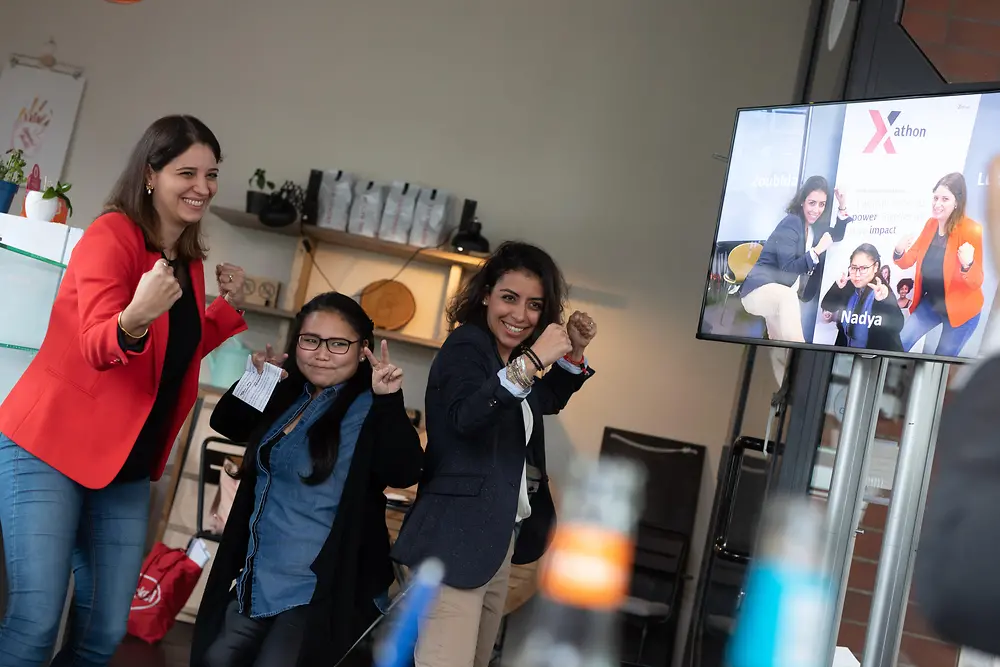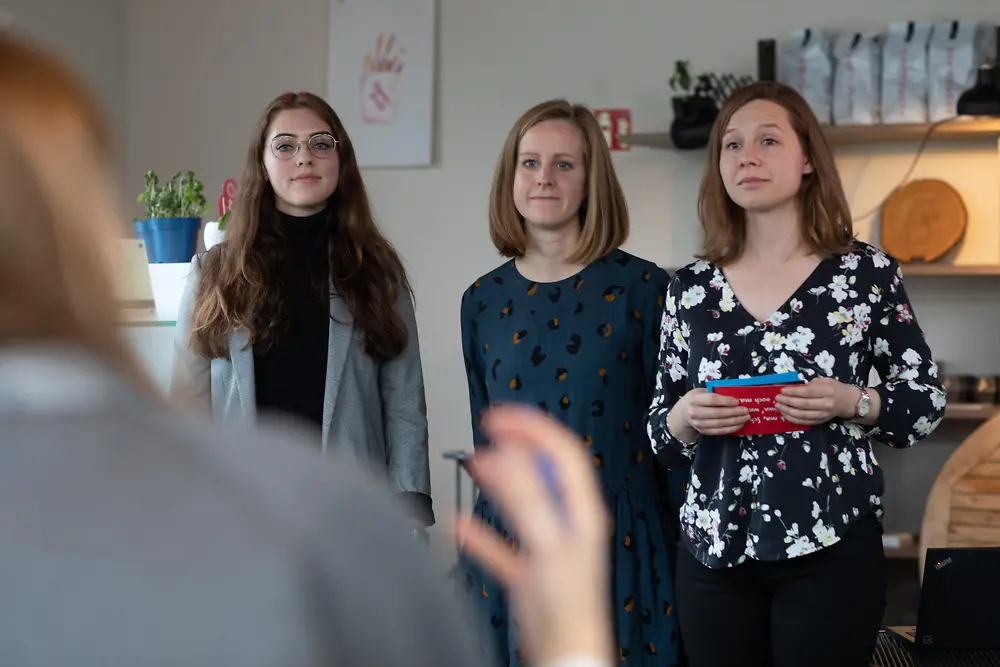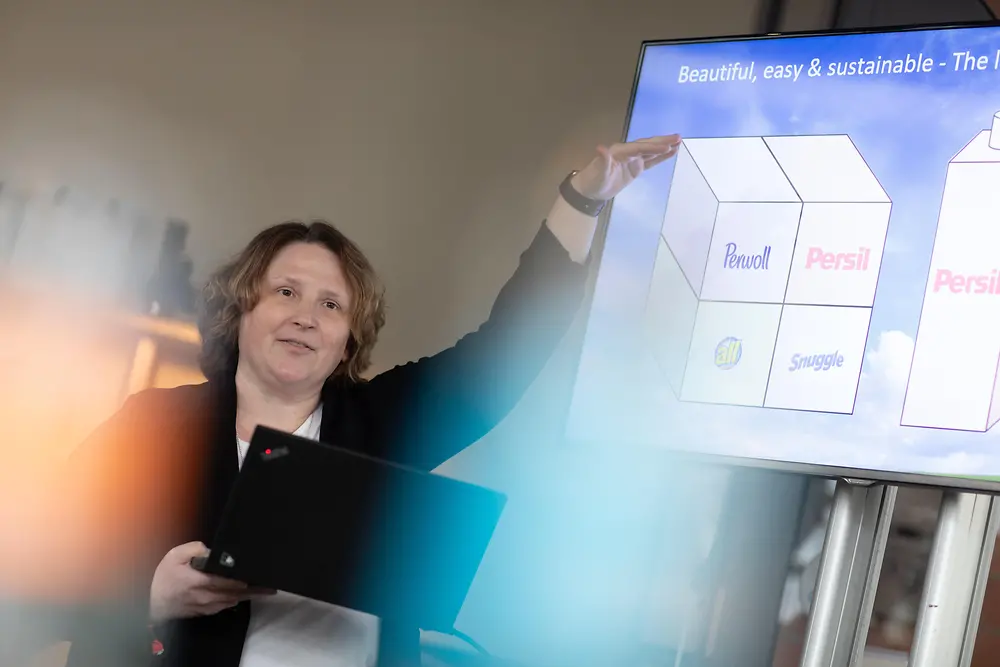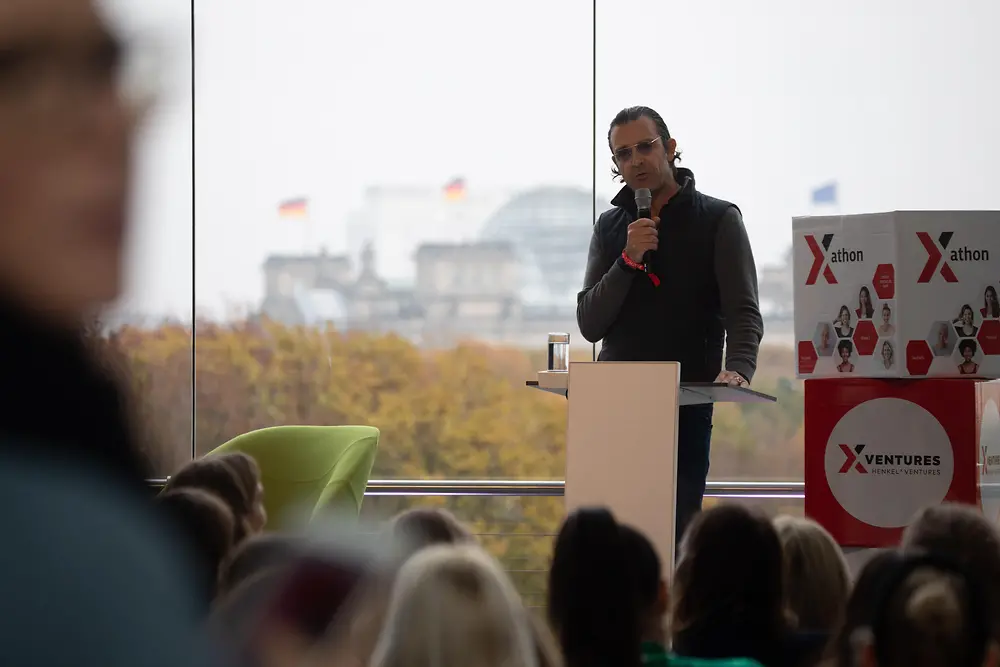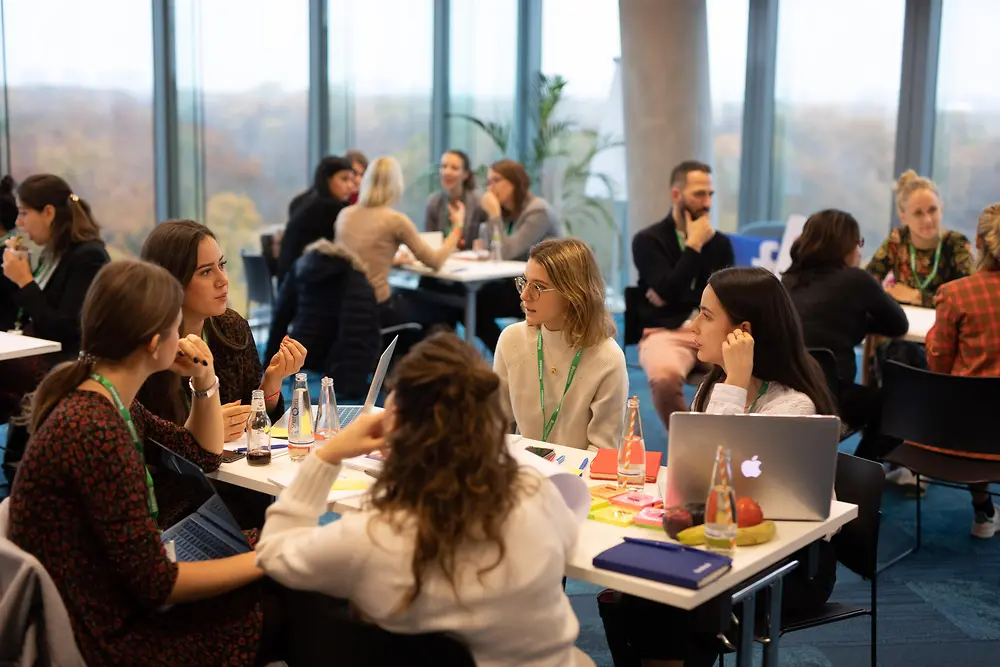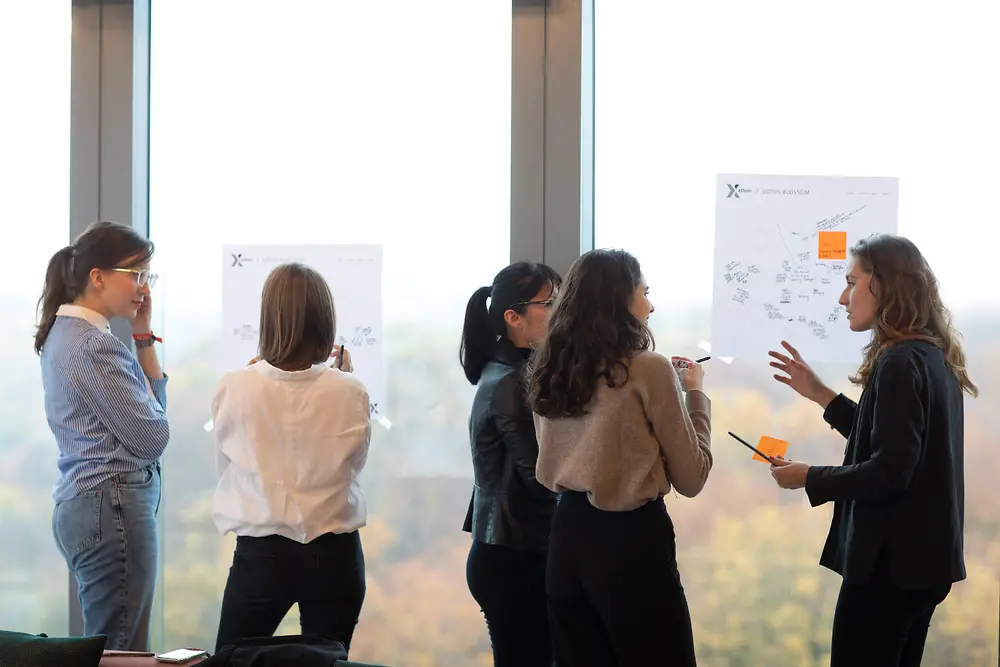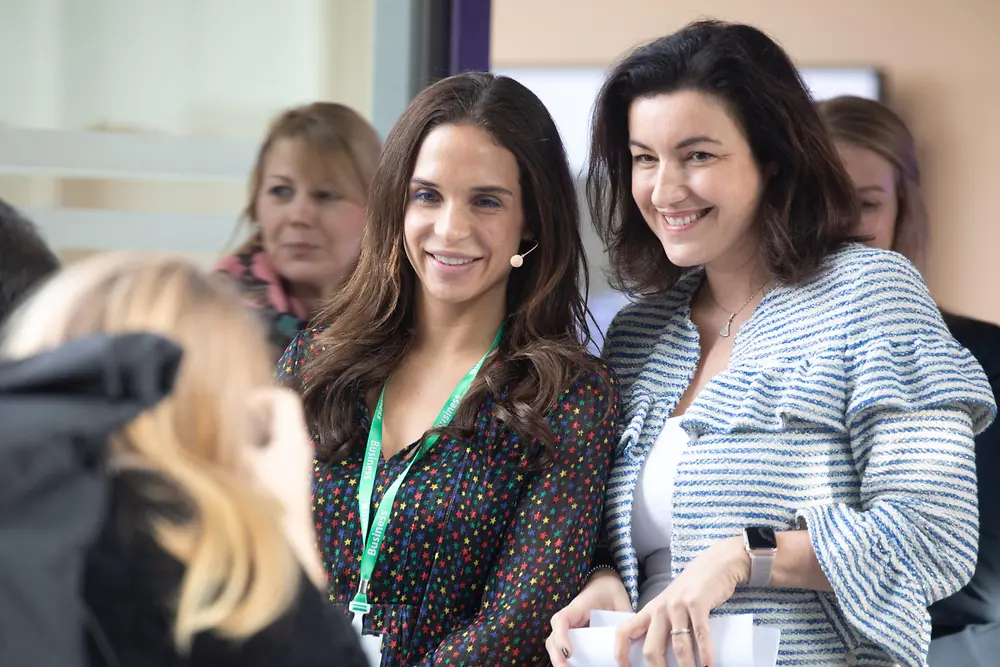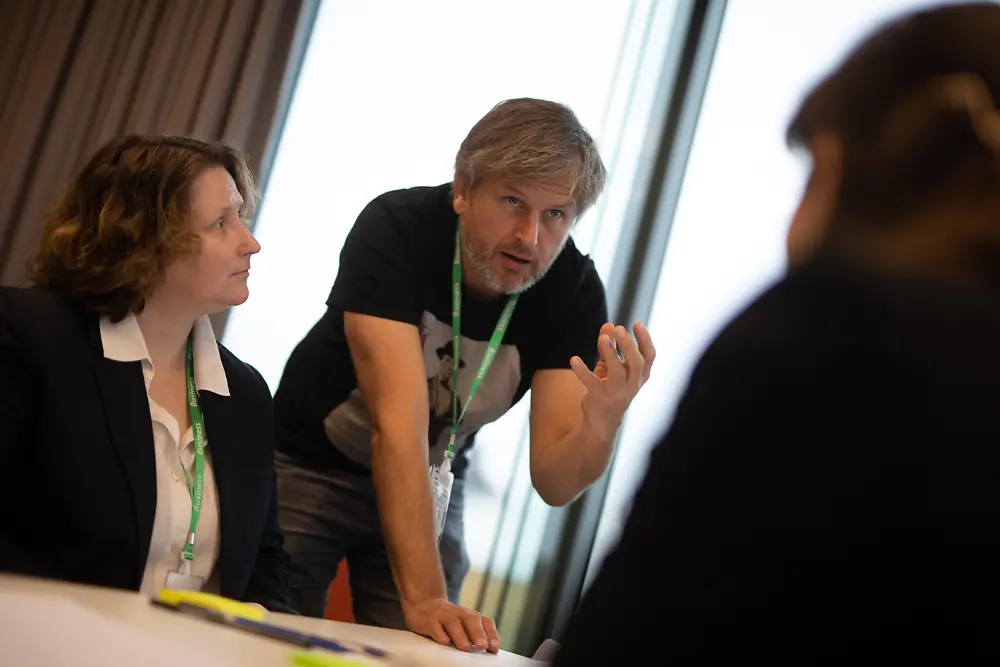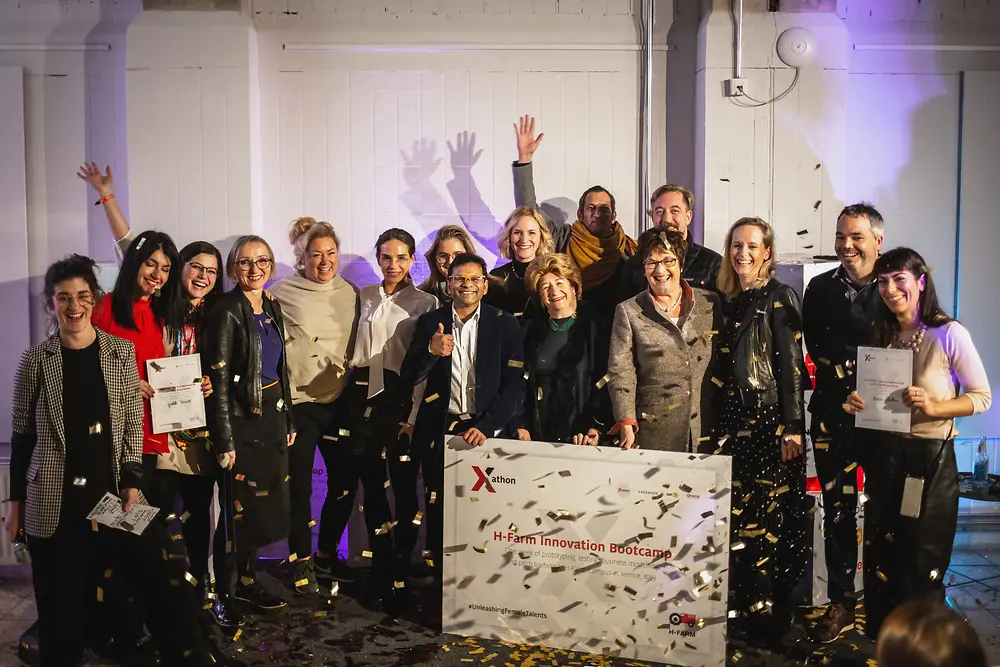Discover the brands and technologies from our business units Henkel Adhesive Technologies and Henkel Consumer Brands.
Journey into Tomorrow Land
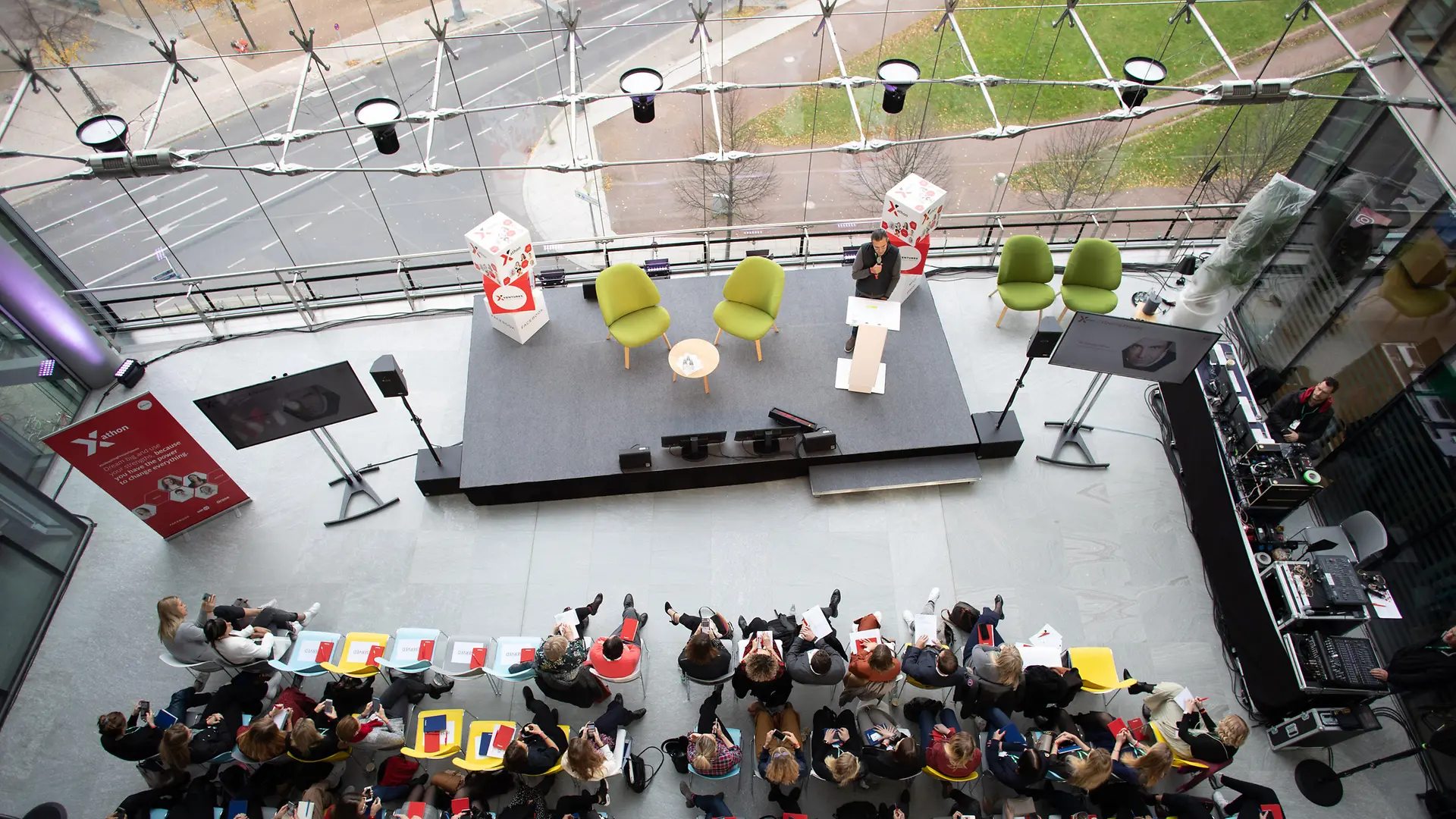
Which business idea has a future? Around 150 talented women met at Xathon in Berlin to find out. We joined three of them, who work for Henkel in Dubai, Düsseldorf and Stamford, for the ride. The trio’s ideas for the company of tomorrow are just as diverse as the women themselves.
The business idea that Kate Davidson had when she set off to Berlin from Stamford, Connecticut, doesn’t look anything like the one she has three days later. She’s not surprised. ‘I’m pleased, actually. This is exactly what I had expected from the idea hackathon – networking with other women from different countries and industries, and working together to develop something brand new.’
No walk in the park
The schedule to make the two-and-a-half day idea hackathon a reality is tight. 22 mentors and 11 coaches work together with the participants to ensure that the arising ideas find their feet – and quickly. The potential of each project is explored in several ideation sprints. The Xathon aims to empower and unleash the entrepreneurial spirit of women since there are too few of them among the number of startup founders, and not just in Germany. Henkel launched the event together with partners including Facebook, investment platform SAP.iO, and Grace, Accelerator for Female Entrepreneurship.
Three women, three paths
20 Henkel employees are among the applicants who were invited to the Xathon. Just like Kate, Zoubida Tazi also decided to take part as soon as she heard about the event. ‘I thought straightaway, Zoubida, that’s perfect for you!’ She laughs, her eyes lighting up. ‘I have quite a few business ideas.’ When Zoubida, who works for Henkel in Dubai, studied in Lyon, she led an association that supports young entrepreneurs in founding their business ventures in Morocco – a topic that is close to her heart, and not just because she was born there.
For Zoubida, the event in Berlin is about something else that she has a burning passion for: ‘female empowerment.’ The mother of a three-year-old and a six-year-old daughter wants more equality between women and men in companies – whether it’s in terms of salary, parental leave, or promotion opportunities.
Zoubida Tazi presents ‘WE’R – the Women Empowerment Rating’ together with Lucie Heidar (left), her colleague from Dubai, and Nadya Huang (center), Henkel Düsseldorf. The label, which the team would like to initially introduce at Henkel, is intended to become the standard for industrial companies. ‘There are already labels for quality, sustainability, fair trade, but there still isn’t one for female empowerment in the workplace,’ she says. That is what she wants to change. ‘We can only improve something if it can be clearly measured!’
Eileen Raßlenberg, one of the youngest participants, is also focusing on the company culture. She came to Henkel as part of her dual studies program in Chemistry and Biotechnology in 2014. She is now doing her master’s degree. Eileen wants to encourage discussions between employees hailing from completely different educational backgrounds and various fields of work in the company. ‘The Xathon is especially fascinating in that regard,’ she says. ‘What’s more is that I can imagine founding a company in the chemical and sustainability sector myself.’ That’s why a few months ago she joined the Venture Club of the city of Münster, where she also studies.
The idea that Eileen Raßlenberg (left) and her colleagues from Düsseldorf Karla Nüsing (center) and Monika Böhnke present in front of the jury is a global collaboration network at Henkel. Everyone in the company should be able to find the right person to talk to among the highly qualified employees quickly and easily. Step one is to distribute postcards in the coming holiday season. Everyone can write a wish, problem, or a question on their card for which there may already be an answer for in the corporation. ‘We want to start small in order to eventually make big changes in the company,’ explains Eileen.
Buying detergent without the overwhelming choice
Kate Davidson’s original idea in the Xathon was born from an area that she is very familiar with – product development for Laundry & Home Care. Since 2013 Kate has been working in Stamford. She was initially employed at U.S. detergent manufacturer Sun before moving to Henkel following its acquisition.
She wants to spare consumers in the U.S. from having to make the choice between hundreds of different laundry products. ‘The customer fills out an online questionnaire created by Henkel and answers questions such as how many people live in the household, whether they do sport, and so on.’ The customer then receives a package at their home containing exactly what they need. The names of Kate’s laundry products reflect their requirements, so they’re called things such as ‘I’ve worked out’ or ‘My messy kids,’ for example. Everything comes in small, manageable packaging so you don’t have to hoard several different detergent bottles at home.
An idea from the U.S. with added sustainability
Where does she see potential to improve her idea? Kate is able to respond immediately to coach Jan Ehlers from ESCP, Europe Business School Berlin. ‘Although the whole thing makes the consumer’s life a lot easier, it’s still not sustainable.’ She’s working together with two colleagues from Düsseldorf, Sophie Kath and Alexandra Lohkamp, who deal with new ideas for laundry detergent and its packaging.
Jan Ehlers thinks this is exactly the right approach. ‘Teams in companies need to be willing to dismiss unfinished ideas from one day to the next if they realize it isn’t quite right. It’s too often the case that ideas are simply pursued without a second thought as soon as they’re first thought of.’
Kate Davidson and her two colleagues from Düsseldorf are pitching the idea of Laundry Boxes – individual boxes for different laundry detergents that sit on the washing machine and can be refilled as often as the consumer wants. The customer can buy the refill packs online or in retail stores. All of the packaging is made from sustainable, reusable material. The team wants to avoid up to at least 30 percent of the previous packaging waste with the Laundry Boxes.
Kate, Zoubida, and Eileen are tired but happy when the Xathon comes to an end after two intense days. Although none of them snagged a prize – top-class founder trainings in Berlin, Paris or Venice – they still thought the hackathon was a massive success. For Kate, the creative process was particularly exciting since she is also keen to build up her expertise as a leader.
Female Entrepreneurship around the world

Ideas blooming from the lotus blossom
‘I hadn’t heard of the Lotus Blossom technique, for example, and definitely want to try it out with my team.’ This type of mind mapping is about finding a new way of looking at a specific problem and coming up with new ways to solve it. The group works together to create the lotus blossom diagram and help achieve this: the key question is written in the middle and the ideas for solutions surround it, just like lotus leaves.
How Zoubida got to the pitch was the real victory in her eyes. ‘The wide range of different people, perspectives, and problems – it was all a huge inspiration for me’, she explains. Chemistry student Eileen learned a lot about setting up her potential business. She also wants to leave her own comfort zone regularly in the future in order to discover new things. ‘Saying yes to the opportunities that arise again and again was one of the most important advices for me.’


